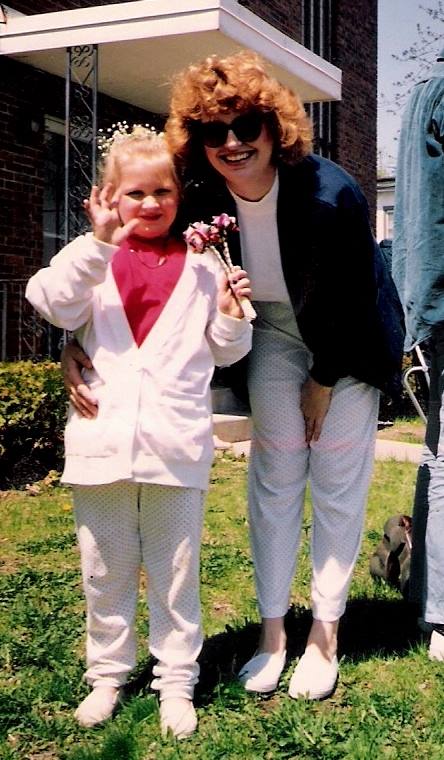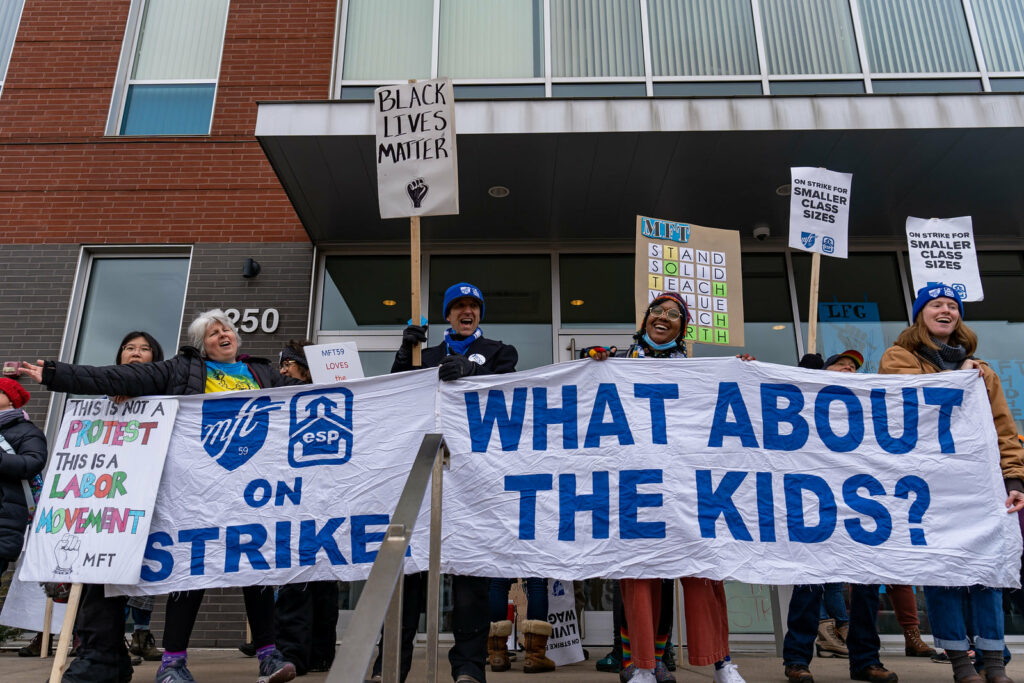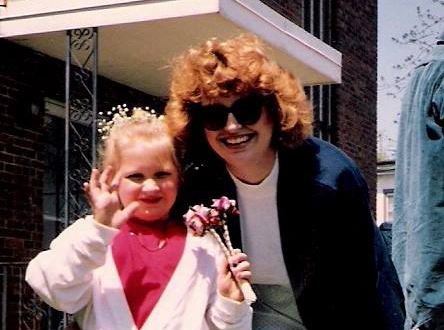
I’ve always loved May Day – ever since I was a kid, when my mom would take me to the Heart of the Beast May Day parade in Powderhorn Park. Her hippie friends would make me flower crowns and we’d celebrate the arrival of spring, reveling in the sunshine and the joy of being in community with so many of our Minneapolis neighbors. As a teenager, one of the first things I did when I got my driver’s license was to sign up to be *in* the parade, and I savored every moment – from building my giant blue papier-mâché mask and hand-stitching a gown out of upholstery fabric and a repurposed prom dress, to marching down Bloomington Avenue surrounded by community.
When I got a little older, I began studying labor history, and learned that May Day is about so much more than welcoming spring and dressing up for a parade (although I still love those things!).
International Workers’ Day originated in the late 1800s to commemorate workers’ ongoing fight for an eight-hour workday, fair wages, and protections on the job; specifically, the date was chosen in 1886 to honor and memorialize the Haymarket Affair, a city-wide labor dispute in Chicago that resulted in riots, police violence against workers, and, ultimately, a shift in the power dynamics between workers and bosses in America. In 1889, labor organizations across the globe adopted May 1 as an official way to observe workers’ ongoing struggles and victories.
Growing up in Minneapolis, I was a union girl before I knew I was a union girl. Minneapolis has been a union town since 1934, when the Teamsters Local 574 coal truckers strike turned into a city-wide general strike, with hundreds of workers taking to the streets, a days-long event that culminated in deadly police violence against striking workers and, ultimately, recognition of the union and the truckers’ rights to fair pay and fair working conditions.
As a kid, my family didn’t have much – but I knew that much of what we did have, we had because my dad was a union member. When work slowed down in the summer, he would get laid off, and stay home with us during the day – but he always knew he had a job to go back to in the fall. And if one of us got hurt or sick, we had health insurance because his union fought for us to have it.
Today, I’m grateful for my union pension and proud to work at an organization where our staff union was voluntarily recognized by management, and where we stand in solidarity with workers in Minnesota and across the country.
In 2022, the pandemic continues to ravage our communities, the foundational design flaws of racial capitalism are being revealed – and workers are not taking it. Here in Minneapolis, we’ve just seen a historic educators strike, and we stood proudly with MFT workers as they fought for very basic demands — protections for educators of color, living wages, and fair working conditions so they can care for our children and provide them the quality public education they deserve.

Across Minnesota, workers are forming unions: from Half Priced Books retail workers to our nonprofit comrades at organizations including OutFront Minnesota and the Minnesota Council of Nonprofits, the fact is: workers are ready to take on the problematic dynamics of workplaces and the hierarchies imposed on our lives because we live inside of capitalism. And nationally, the trend continues: Amazon workers won their historic bid for a union just weeks ago; and more Starbucks “partners” from coast to coast – and even in St. Paul and Minneapolis – are unionizing every day.
This May Day, we’re so glad to welcome spring – and to stand in solidarity with workers everywhere who are fighting for living wages, affordable health care, and better working conditions. We shouldn’t need unions, but the sad truth is that without them, we’d be stuck back in the 1800s, with grueling hours, measly pay, dangerous working conditions – and no one to hold accountable for our wellbeing.
We exist in a system that was designed to harm workers – especially Black workers, workers of color, women, immigrants, and queer and trans people – and to keep us poor and incumbent to the overlords who issue our paychecks. It doesn’t have to be that way.
Over a century after the first observed International Workers’ Day, workers have made incredible progress through collective action. That fight isn’t over. Today’s workers stand on the shoulders of those who came before us – from the Black Sleeping Car Porters who organized members across the nation for civil rights and living wages in 1925 and the Teamsters who took to the Minneapolis streets in 1934; to folks like Mother Jones, Bayard Rustin, and Dolores Huerta who put their lives on the line in the fight for workers’ rights; to activist artists like Minneapolis’ own Ricardo Levins Morales, who has spent a lifetime bringing creativity and joy to the labor movement.
This Sunday at noon, join us – and a growing list of labor and immigrant rights organizations – for a May Day March on Lake Street. The march will start at the MPS Adult Education Center at 2015 E Lake Street in Minneapolis and will end at the May 1st Street Festival (1527 E. Lake Street).
I can’t wait to see you there and celebrate together as we honor the labor movement and march for workers’ rights today and for years to come.
In unbreakable solidarity,
Trisha Harms, Communications Director (she/her)

